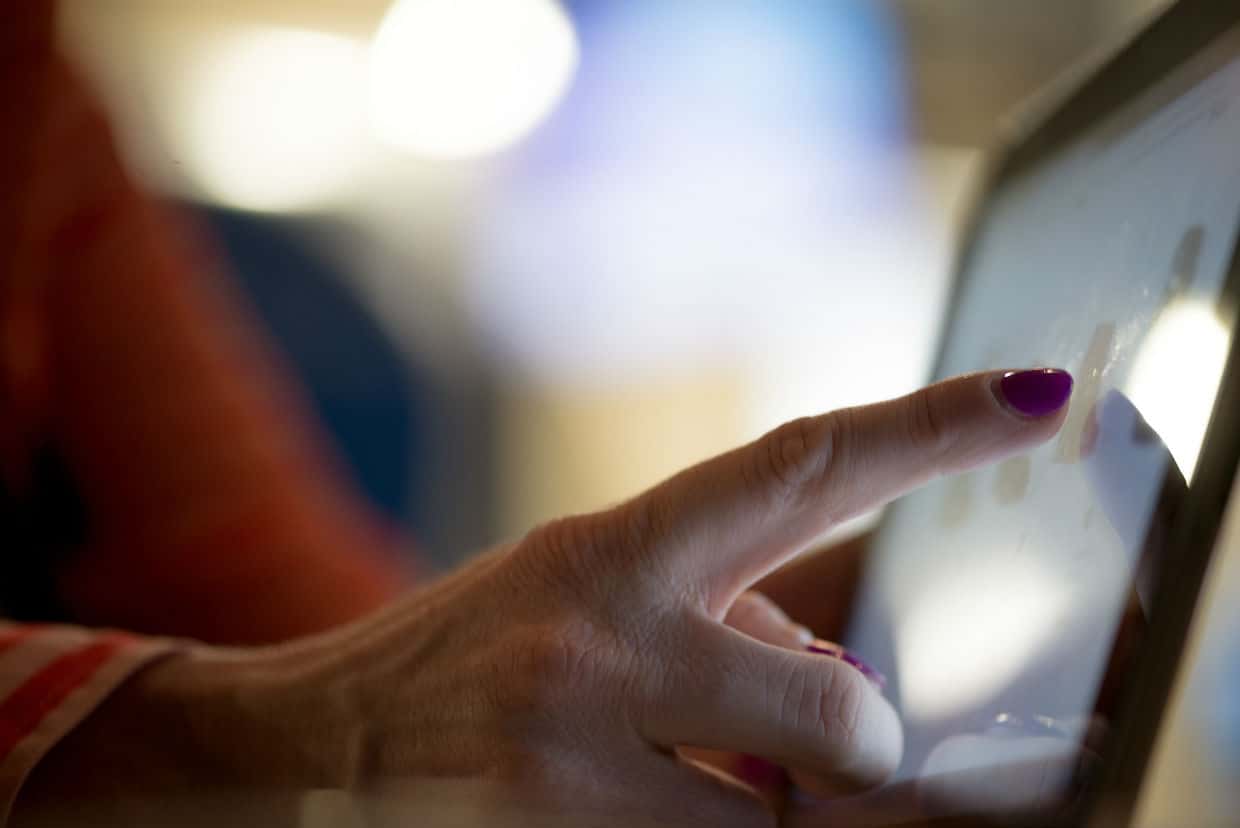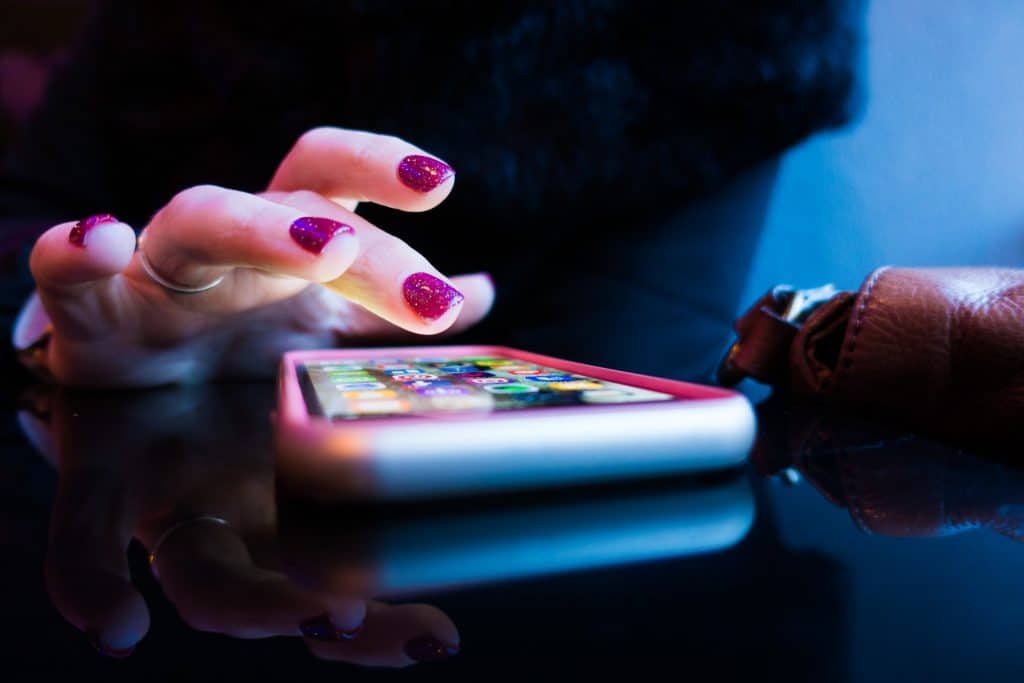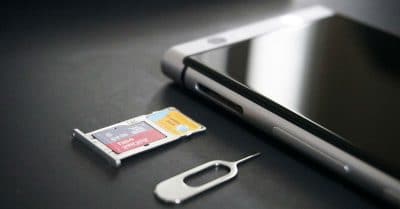Smartphone Addiction Statistics: All You Need To Know About Overuse of Cell Phones
When we think about problems with mobile phones, we tend to think about battery woes and smashed screens. But with the number of mobile phones and phone users growing, there’s another, more serious problem that’s also increasing.
There are predicted to be around 4.5 billion mobile phones in the world by the end of 2019, meaning around 63% of us will have a mobile phone. And alongside that rapid growth in phone ownership comes the sinister problem of smartphone addiction. What is it? Is it real? What can we do about it? That’s what we’re here to find out.
What Is Smartphone Addiction?
Ever think about just how often you use your mobile? Ever get nervous or antsy because you’ve accidentally left your phone at home? Do you sometimes promise yourself that you’re not going to use your phone but then find yourself using it anyway? All of these could be signs of smartphone addiction.
Smartphone addiction, or to give it its real name, nomophobia, is exactly what you expect: being addicted to your smartphone. In the same way as you might get addicted to cigarettes, alcohol, drugs, video games, gambling, or even shopping, you could potentially get addicted to your phone. Not all of us suffer from smartphone addiction, but some do, and the potential is there. In the same way that some people can have a couple of beers at the pub and then go home and others find themselves drinking a bottle of vodka a night (or escalating to drinking more), some people find that they have problems putting down their phones.
Is Smartphone Addiction Real?

Okay, so whether smartphone addiction is real or not is kind of a tough question. Psychologists use a book called the DSM (The Diagnostic and Statistical Manual of Mental Disorders) to diagnose mental diseases, and in this book, you’ll find many other addictions, such as alcoholism, gambling, and even sex. Smartphone addiction does NOT appear in the most current edition of the DSM, leading some people to think that it’s not a real addiction.
However, the DSM is not updated yearly, or even every other year, in fact, it’s updated roughly every ten years or so. And since smartphones are relatively new technology, this means that the current version of the DSM may simply just not be up to date enough to reflect reality. And there are plenty of studies that show evidence proving that smartphone addiction could be a real thing.
The Evidence for Smartphone Addiction

Scientists, psychologists included, just love doing studies, and there have been some pretty impressive studies showing that smartphone addiction is a real problem:
- A study from MIT that found that students who were asked to give up their phones for just 24 hours suffered from anxiety and confusion without their mobiles
- A study from the Journal of Computer-Mediated Communication that found that some young people suffered from withdrawal symptoms (like increased blood pressure and heart rate) when separated from their phones
- A study that linked the increase of suicide rates in young people to an increase in the use of social media and mobile phones
- Or if you prefer something a little more concrete, a study presented at the Radiological Society of North America conference that found differences in brain structure and brain function (included different levels of chemicals in the brain) in teens who were thought to be addicted to smartphones (and corresponding “normalisation” of brain structure and function after these teens went through treatment)
And there are hundreds of more studies just like these, that show that in some people, smartphone use is a problem. A recent overview of cellphone addiction studies published in 2018 found said that whilst cellphone use was a problem, that using the word addiction could be misleading.
Addiction is a disorder with severe effects on physical and psychological health. A behaviour may have a similar presentation as addiction in terms of excessive use, impulse control problems, and negative consequences, but that does not mean that it should be considered an addiction. We propose moving away from the addiction framework when studying technological behaviours and using other terms such as ‘problematic use' to describe them.
Whether we choose to call it smartphone addiction, or just ‘problematic use of smartphones,’ the truth is that overuse of smartphones can be a problem and can have consequences. So, yes, it’s real, though you might want to avoid using the word addiction…
What are the Signs/Symptoms?

Psychologists like making lists of symptoms for addictive behaviours, and the current standard is a list of six main symptoms that are linked to smartphone addiction:
- Feelings of unease, anxiety, or irritability if you cannot access your phone
- Using your phone for longer than you intended (promising yourself half an hour with Facebook or Candy Crush and spending an hour instead)
- Wanting to stop using your phone, or decrease your amount of usage, but failing to do so
- Inability to resist the impulse to use your phone
- Increased attention to your usage or to the idea of quitting using your phone
- Continuing to use your phone even though there are negative consequences (your eyes get tired, your wife gets angry, etc.)
Psychologists also use four ‘functional’ criteria to diagnose smartphone addiction, meaning symptoms that have real-life consequences. And these criteria are:
- Excessive use of a phone that results in physical or psychological problems
- Using your phone in physically hazardous situations (like in the car) or in situations that have a negative impact on daily life (like in the office when you’re not supposed to)
- Phone use that negatively affects social relationships or performance at school or at work
- Phone use that is time-consuming or that causes distress
In order to officially be considered a phone addict by psychologists, someone has to show three or more of the main symptoms, and two or more of the ‘functional’ symptoms.
If you think that you, or someone you know, are a smartphone addict, then there’s a simple online test that can help you self-diagnose.
How Many People are Addicted?

It’s tough to say exactly how many people are addicted to their phones. Addiction really depends. Some people can pick up their phones fifty times a day because they have emails or calls, and that’s perfectly normal for them, in fact, it would negatively impact their life if they didn’t pick up their phones that often (they might get fired!). Others can pick up their phones twenty times a day and have it be a problem, ending up getting thrown out of school classes or getting into trouble at work for using their phone too much.
A recent survey found that around 50% of young people felt that they were addicted to their phones. Of course, not all of those people are addicted, but simply feeling that they are can have a negative impact on their lives. And young people are more likely to experience addiction, simply because they are more used to having phones play an integral part in their lives.
Smartphone Addiction: The Statistics

Even though it’s impossible to say exactly how many people are addicted to their phones, there are some scary statistics that show that mobile use isn’t as innocent as you might think. This infographic (based on several independent studies) has some interesting numbers, including:
- The average person checks their phone 47 times a day
- 80% of people use their phones before sleeping
- 85% of people have no problem using their phones whilst talking to friends or family
- 47% of people have tried to limit their phone use, but only 30% of those succeeded
- The average person uses their phone for 171 minutes a day (that’s almost three hours), with 76 of those minutes spent using social media apps like Facebook, Instagram and Snapchat
- Teenagers who spend five hours a day or more on electronic devices, including phones, are 71% more likely to suffer suicidal thoughts and 51% more likely to get less than seven hours of sleep a night
- 67% of teachers have seen students be distracted by their phones
- 47% of parents think their child is addicted to their phone
- 89% of parents blame themselves for their child’s cell phone usage
Smartphone addiction is a problem all across the world, with a recent survey finding that Brazil was the worst country to live in for cell phone use, with Brazilians spending around five hours a day on their phones. The United States came third on the list, and the UK came eighth.
And that’s not all when it comes to getting distracted by phones (resulting in a negative consequence), the stats get even worse. Another study found:
- 40% of people check their phones on the toilet
- 12% of people have used their phone in the shower
- 1 in 5 people have used their phones during sex (!)
- 61% of people sleep with their phones
- 75% of people reach for their phones when they wake up
- 50% of people feel uneasy when they leave their phones at home
- 26% of car accidents are caused by cell phone use
The truth is though, most of us don’t need to read these stats to know that mobiles can be addictive. Nearly all of us have found that we reach for our phones without meaning to, that we spend more time on them that we really should, and that we can’t put them down once they’re in our hands…
What Are the Consequences of Phone Addiction?

Using your phone a little too much every now and again might not be terrible, but doing so constantly can have some pretty serious negative effects. A collection of studies have found that there are some big repercussions to over-using your phone:
Sleep Deprivation
Not getting enough sleep can lead to physical illness, memory loss, and negative impact on learning skills, not to mention leaving you irritable and grumpy.
Depression and Loneliness
Particularly a problem with teenagers, interacting through cyberspace rather than in real life can lead to people feeling lonely and therefore depressed.
Anxiety
This can be anxiety from forgetting the phone that you so desperately need, or from the constant onslaught of work emails you just have to respond to, or just from continuous stimulation.
Stress
Similar to anxiety, having a constant connection to your work, office, boss, schoolmates, teachers, and even friends can lead to stress, there’s no way to ‘get away from it all’.
Narcissism
Especially in those that use social media too often, narcissism means becoming self-absorbed, thinking only about yourself, your selfies, your posts, without considering others.
ADD
Being on your phone too much can affect your attention span, making it hard to concentrate on things for more than a few minutes at a time.
Injury
A study in Manhattan found that 42% of pedestrians that walked into traffic ignoring the Do Not Walk sign were on phones or otherwise distracted by electronic devices.
Over-using your phone can mean all kinds of consequences, from not sleeping enough to anxiety, narcissism, and even physical illness like neck injury or cramps from staring at your phone too long, or posture problems.
Am I a Smartphone Addict?
You could be a smartphone addict if you exhibit the symptoms listed above, or you could take the test we linked above. But if you’re looking for a quick and dirty answer, then psychologist James A. Roberts suggests looking at the following six statements and seeing if four or more apply to you:
- I reach for my phone first thing in the morning
- I use my cell phone when I’m bored
- My mobile use is increasing
- I become anxious or agitated if my phone is out of sight
- Other people complain about my mobile use
- I try to cut back on my mobile use, but find it difficult or impossible to do so
And if you have diagnosed yourself as having a problem, what exactly can you do about it?
What Can Be Done About It?

There are all kinds of things that can be done about smartphone addiction. The most serious cases can benefit from cognitive behaviour therapy by visiting a psychologist. But if you’re not quite that bad yet, there are a few ways that you can help yourself limit your usage:
- Use an app. There are several apps to help cut down your phone use, and we’ll give you a helpful list in the next section
- Switch your phone to a dumb phone. Getting rid of your smartphone altogether is probably the best way of getting rid of temptation. Of course, this might not be a practical solution for everyone…
- Monitor your usage. On Android, you can easily access your usage stats from your settings menu. Maybe seeing just how much time you’re on your phone might be enough to help you cut down. And some apps, like Facebook, for example, allow you to see how much time you’re on the app and even to limit the amount of time you’re there.
- Turn your phone off. No, seriously. Turn it off at night an hour before bedtime, and turn it off when you’re going out to dinner with friends or family, or if you’re in a meeting. Your notifications will still be there when you switch back on again.
- Out of sight (or hearing) can mean out of mind. Put your phone away, rather than keeping it on the table or on your desk, and turn off your audio notifications. What you can’t see or hear won’t bother you as much.
- Delete apps that suck away your time. This is especially important if you’re a big gamer, but it works for social media apps too. You can always access your Facebook from your computer, after all.
- Set yourself a schedule, using alarms and timers if necessary, so you only use your phone at certain times of the day and for a limited amount of time.
- Think about what triggers your phone use and try to avoid those triggers. If you often use your phone when bored then try and find something else instead (ten sit ups or push ups are a good and healthy alternative). If you use your phone whilst watching TV, then try going out instead…
- Consider having a digital detox, where you lock away all gadgets and screens for at least a weekend and don’t use them at all.
If you’re worried that your problem is so serious that the above won’t help you, then you can look for professional help. You can find out how to access psychological help through the NHS here, and you can find a list of accredited psychologists here. You can get phone help and counselling through CABA by calling +44 (0) 1788 556 366 twenty-four hours a day, or access their online chat counselling here.
Some Helpful Apps

If you’re looking to cut down on your cell phone use, then there are some apps that you might find helpful:
- Siempo is an app that changes your phone to make it more… boring. It makes your mobile black and white and allows you to schedule or cluster notifications so that you’re not constantly distracted by beeps and rings…
- Space takes away the immediate gratification of opening your phone or opening an app. When you click on an app to open it, Space delays that opening, instead instructing you to take deep breaths and consider whether you really want to launch the app or not…
- Forest gamifies non-use of your smartphone. The longer you leave your phone untouched, the taller your in-game tree will grow. Touch your phone and your tree will die and you’ll need to start again…
- Hold is another gamification app where you compete against others to be the one who can go without touching their phone for the longest amount of time. You earn points which can, in turn, be traded in for things like cinema tickets…
- Headspace is a mobile meditation app that focusses on putting your attention elsewhere. It’s not exactly designed to help with mobile addiction, but it could be a good alternative if you find that you’re picking up your phone when bored. Instead of messing around on social media or other apps, you could be doing some productive meditation instead…
- RescueTime lets you not only track how long you spend on your phone and also on individual apps, but also lets you set goals, and set alarms for when you’ve spent too long on a given site or app. You’ll get a detailed daily report so you can see exactly where your time is going…
Smartphone Addiction: The Bottom Line
For many of us, having a smartphone is a life saver. We work, play, and stay connected through our phones. But for a growing group of people, a smartphone is becoming more of a problem than a help. Smartphone addiction, or problematic behaviour associated with mobile phones, is a real thing and can have an impact on people’s lives.
Fortunately, there is help available. You might be able to solve your problems yourself and cut down on your usage, or you might need a little professional help. But it is important that you can leave your phone in the next room, in your pocket, or even at home from time to time. Give yourself a break, and ignore your phone from time to time, it’s a healthy decision to make!




